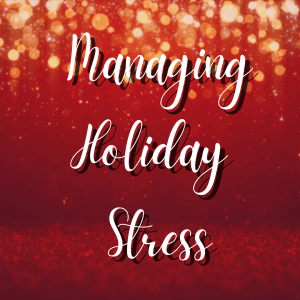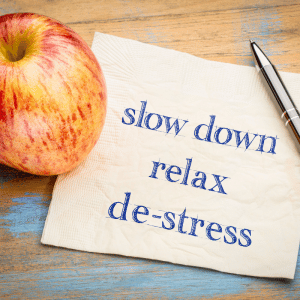 As the year draws to a close and the nights drawn in, its time to relax and practice some self-care. Self-care is a phrase coined by psychologist Dr. Richard J. Hillman in the early 1990s to describe time spent looking after one’s emotional, social, and physical needs to prevent or reduce feelings of stress and anxiety. Self-care includes healthy eating habits, exercising, having enough sleep. Self-care may also include more creative pursuits such as meditation or crafting. This is what Alison and Sophie will be getting up to take care of themselves. What will you be up to?
As the year draws to a close and the nights drawn in, its time to relax and practice some self-care. Self-care is a phrase coined by psychologist Dr. Richard J. Hillman in the early 1990s to describe time spent looking after one’s emotional, social, and physical needs to prevent or reduce feelings of stress and anxiety. Self-care includes healthy eating habits, exercising, having enough sleep. Self-care may also include more creative pursuits such as meditation or crafting. This is what Alison and Sophie will be getting up to take care of themselves. What will you be up to?
As we get further into winter, there is nothing better than spending your nights indoors and cosied up. But perhaps this is the time to be practising some much-needed end-of-year self-care. You have worked hard this year after all! Something as simple as reading a good book can really relax your mind, or if you have a little more time to spare, maybe try getting into aromatherapy? This is a great way to combat those feelings of anxiety, depression and improve sleep when stress levels are high. This blog by Katie Brindle offers some great information on the benefits of aromatherapy, the Hayo’u Method, and using it for a night of relaxing and nurturing.
How we are spending the holidays
Alison
I am looking forward to taking time off for the two weeks straddling the Christmas and New Year period. It really helps to disconnect from work and take some family and some me time. I really love cooking so I will be cooking the Christmas roast this year. I crank up the Christmas tunes and bop around the kitchen while I baste the turkey and peel the spuds. By the time everything is cooked, I feel relaxed and have a Holiday vibe.
Its also time for me to get creative. I knit for family and friends, or maybe some sewing. It helps me decompress. I find that the creative pursuit is enough for me. I get fully immersed in it and feel great by the end of the two weeks.
If the weather is kind, then I get plenty of walks in. Getting fresh air is so important, especially when using that time to do exercise. Though we have now headed into the shorter and colder days, wrapping up and going for even just a short walk in your nearest park can do you so much good.
This year, having moved out of London to the countryside, I am also thinking about getting a real Christmas tree for the first time ever. I want to decorate it with traditional decorations, like tied up bundles of cinnamon sticks and dried slices of orange. Perhaps a few sprayed pinecones for good measure!!! I am also popping into our local florist to make a real wreath this year so the front hall will smell or pine and spice whenever someone comes to the door.
What do you do with your time off?
Have a wonderful holiday season
Alison
Sophie
This year has been full of firsts for me. My first long term job that is developing into a career. My daughter going to school for the first time. Finding my first long term home, in which myself and my daughter have had so much fun decorating, and I’m overjoyed to spend our first little proper Christmas together here. I’m not much of a cook, but that’s not to say I won’t give cooking my first Christmas dinner a go. Fingers crossed I won’t burn down the new house!
The festive period is also a time where I can get a little bit creative, especially with my four-year-old. Making Christmas cards for her new school friends, making paper chains and cutting out paper snowflakes to stick on the windows are staple childhood Christmas activities, and even my inner child can’t wait!
As well as the new home and settling into a new job, I will also be preparing to take on studying again while continuing my work with Alison. So, I am going into the new year full of hope and security, and with great tutelage from Alison and a lot of learning, I can only imagine what 2022 will bring for me. What are you looking forward to in 2022?
Have a happy holiday season.
Sophie.







